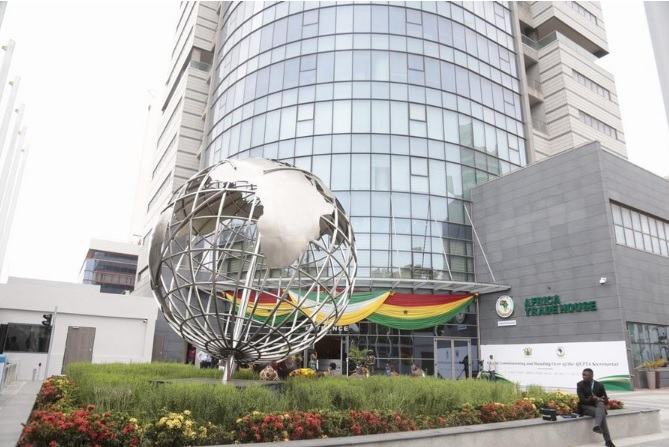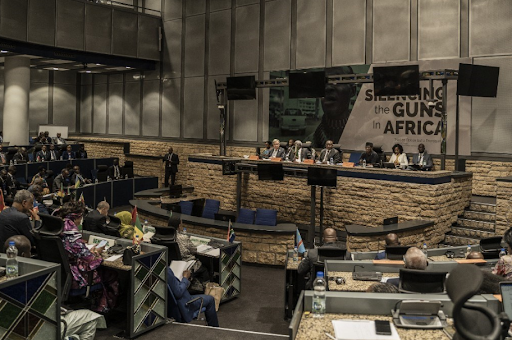
US Central Command Statement: "U.S. Forces, Allies Conduct Joint Strikes in Yemen; Houthis respond
After re-listing Houthis as a terrorist entity, US government has signaled that its strikes in Yemen are going to gain some permanence, coining a new name for the operation: “Operation Poseidon Archer”. Afterwards, the US Central Command issued a statement, announcing that the "U.S. Forces, Allies Conduct Joint Strikes in Yemen."
The full statement from US Central Command:
As part of ongoing international efforts to respond to increased Houthi destabilizing and illegal activities in the region, on Jan. 22 at approximately 11:59 p.m. (Sanaa / Yemen time), U.S. Central Command forces alongside UK Armed Forces, and with the support from Australia, Bahrain, Canada, and the Netherlands, conducted strikes on 8 Houthi targets in Iranian-backed Houthi terrorist-controlled areas of Yemen.
These strikes from this multilateral coalition targeted areas in Houthi-controlled Yemen used to attack international merchant vessels and U.S. Navy ships in the region. The targets included missile systems and launchers, air defense systems, radars, and deeply buried weapons storage facilities.
These strikes are intended to degrade Houthi capability to continue their reckless and unlawful attacks on U.S. and U.K. ships as well as international commercial shipping in the Red Sea, Bab Al-Mandeb Strait, and the Gulf of Aden. These strikes are separate and distinct from the multinational freedom of navigation actions performed under Operation Prosperity Guardian."
The UK followed with its own statement:
UK Defense Security statement. Four British Eurofighter Typhoon fighters conducted strikes against Ansar Allah this evening.
____
A message from Mohammed Albukhaiti, senior member and spokesperson of Ansar Allah
My message to the European Union countries regarding their possible participation in a military mission in the Red Sea.
The exceptional state of stability and security that Europe experienced after World War II is a result of the moral values that prevailed in its societies at the internal level. However, this moral system began to weaken as a result of the participation of some European countries in the immoral wars that America fought outside its borders. We are now seeing its effects in the rise of the extreme right and the war in Ukraine.
European societies must realize that moral and human values are fixed and do not change according to the nationality and religion of a person, and their treatment of them with extreme selectivity that amounts to schizophrenia will expand the scope of wars in the world, which will expand to Europe.
There are genocidal crimes committed every day in Gaza, the majority of whose victims are women and children, in full view of the world, and all countries must take serious action to stop them.
Unfortunately, the movement of some countries with their fleets in support of the perpetrators of genocide and the silence of others is what prompted us to take unilateral military action to stop it, because we had no choice but to do so.
We only target ships linked to Israel, not with the aim of seizing them or sinking them, but with the aim of changing their course to increase the economic cost to Israel as a pressure card to stop its crimes in Gaza and allow the entry of food, medicine and fuel to its besieged residents. This is a legitimate act, especially since we are in a state of war with it. If the crews of those ships had responded to the instructions of our naval forces, they would not have been detained or bombed.
The steadfastness of the Palestinian people and the military operations of Yemen and Hezbollah against Israel were sufficient to pressure it to stop its crimes, but the American and British support for it, which reached the point of launching an aggression against Yemen, created the conditions for it to continue committing more crimes and expanded the scope of the conflict.
Today there is a war between Yemen, which is struggling to stop the crimes of genocide, and America and Britain, which are fighting to support and protect the perpetrators. It is also clear that the Palestinian people are not ready to surrender, which means that the situation is heading towards escalation.
Instead of European Union countries moving to add more fuel to the fire, they should move seriously to stop the crimes of genocide in Gaza, and then we will stop all our military operations immediately and automatically.
The Palestinian people are being subjected to great injustice to the point of being deprived of the right to live on their land by force of arms. If another human group had been subjected to the injustice that the Palestinians are being subjected to, we would have moved to help them, regardless of their religion or color.
We are not advocates of war, but rather advocates of peace, and it is America and Britain that attacked us, whether in 2015 indirectly or today directly, and we advise the European Union countries not to participate in any aggression against Yemen.
Our keenness to achieve a just and comprehensive peace that guarantees the safety and dignity of all countries and peoples does not mean abandoning our duty to defend the oppressed, nor abandoning our right to self-defense, no matter the sacrifices it costs us. We are prepared to fight until the Day of Resurrection even if the whole world comes together against us."






















































